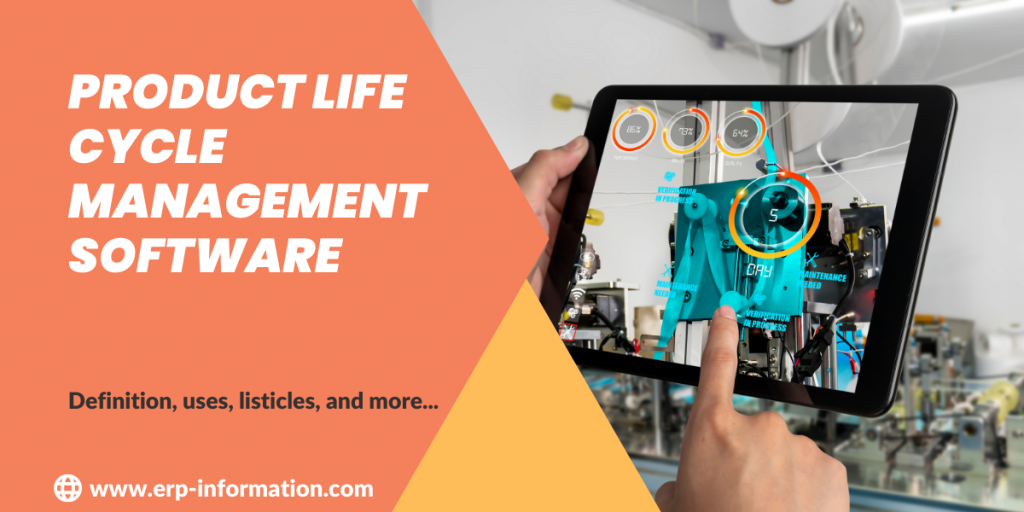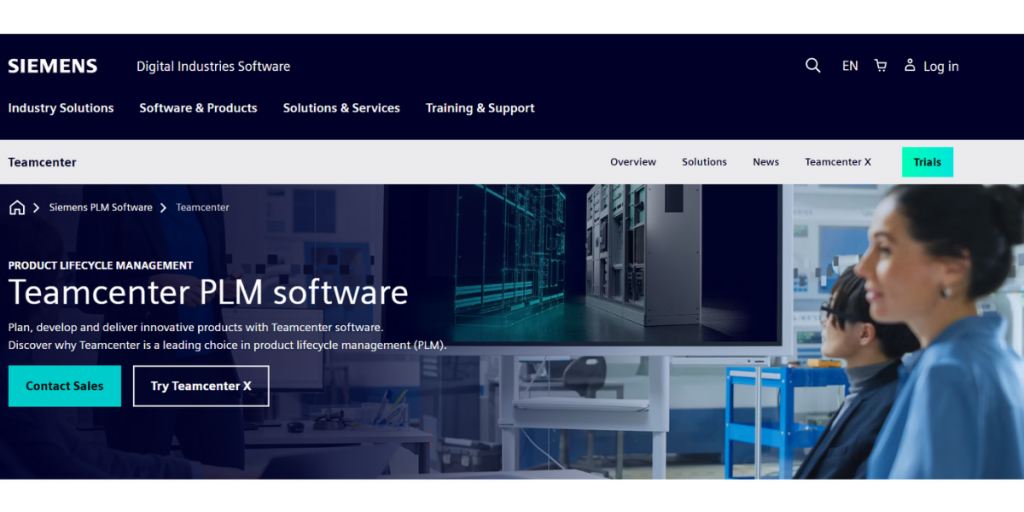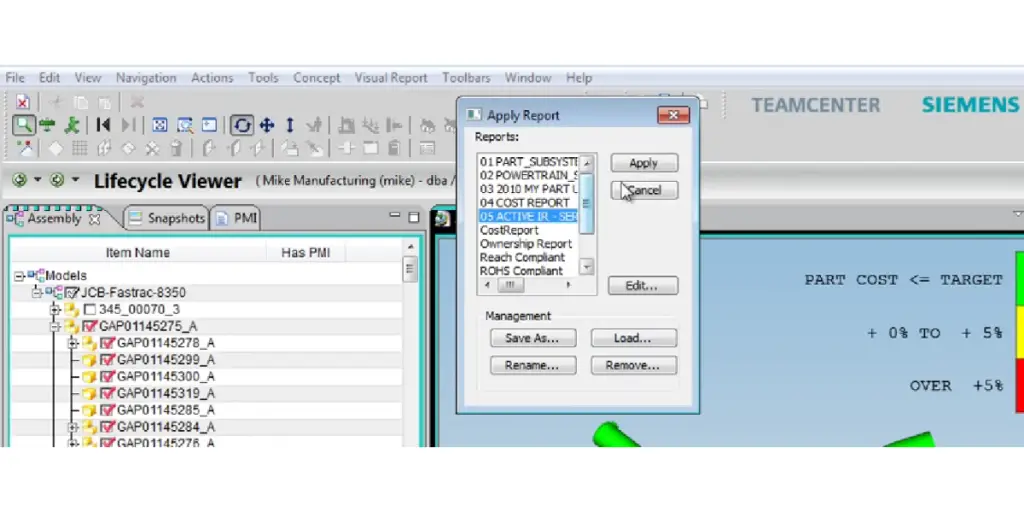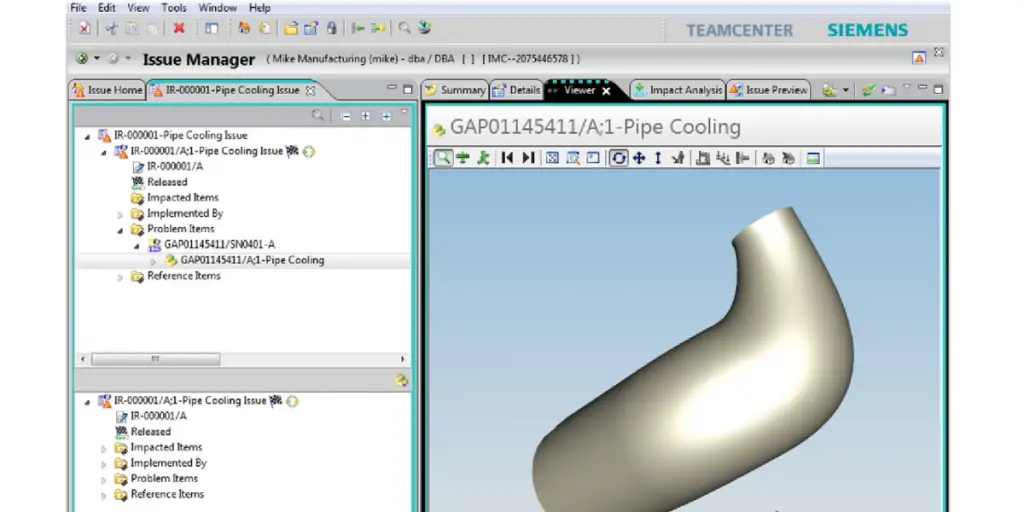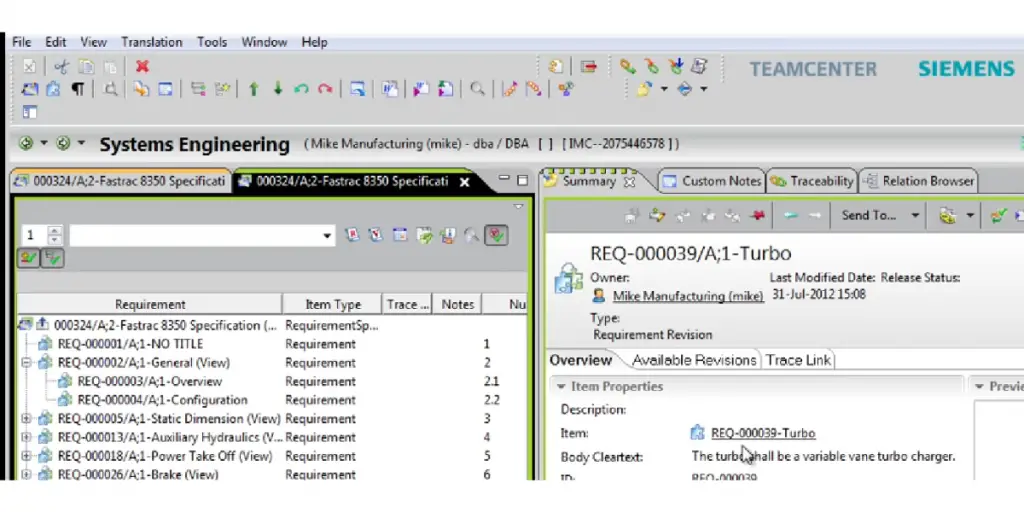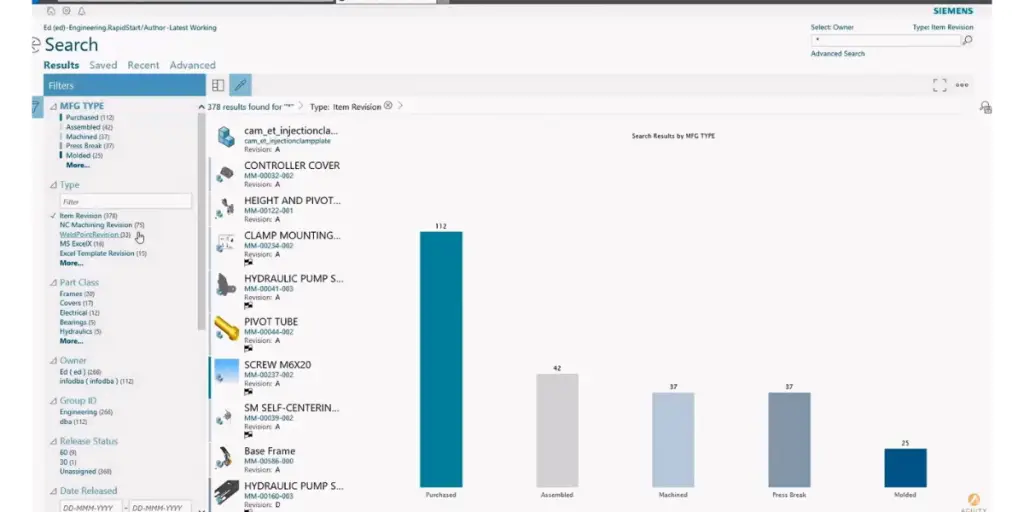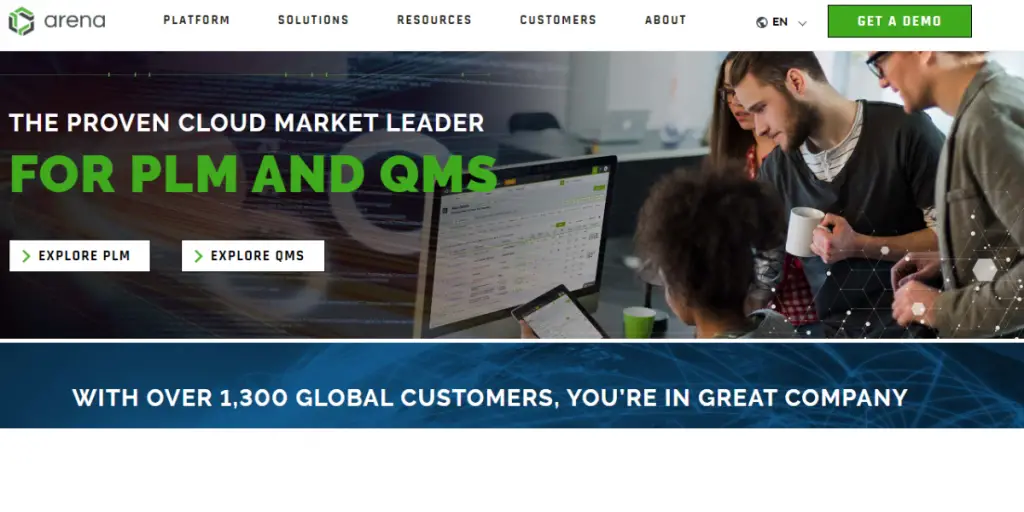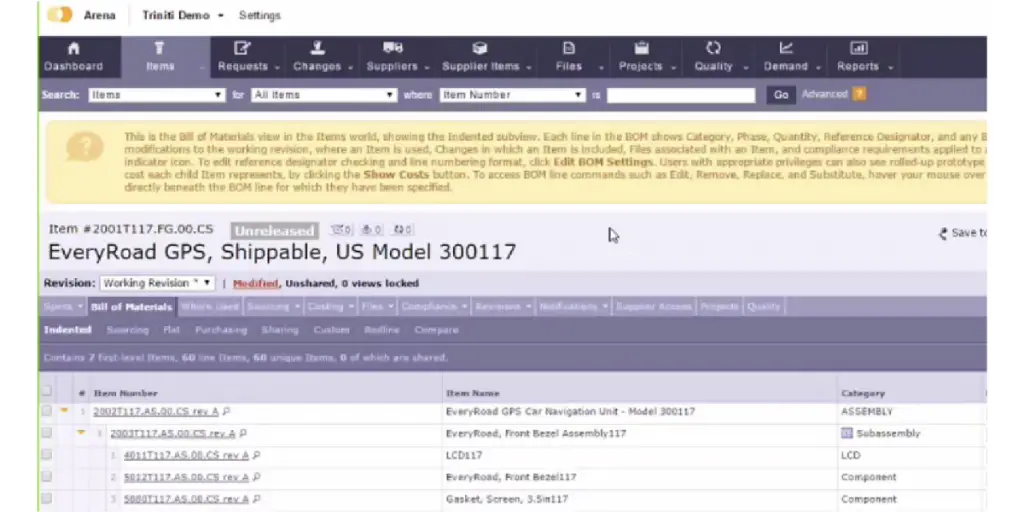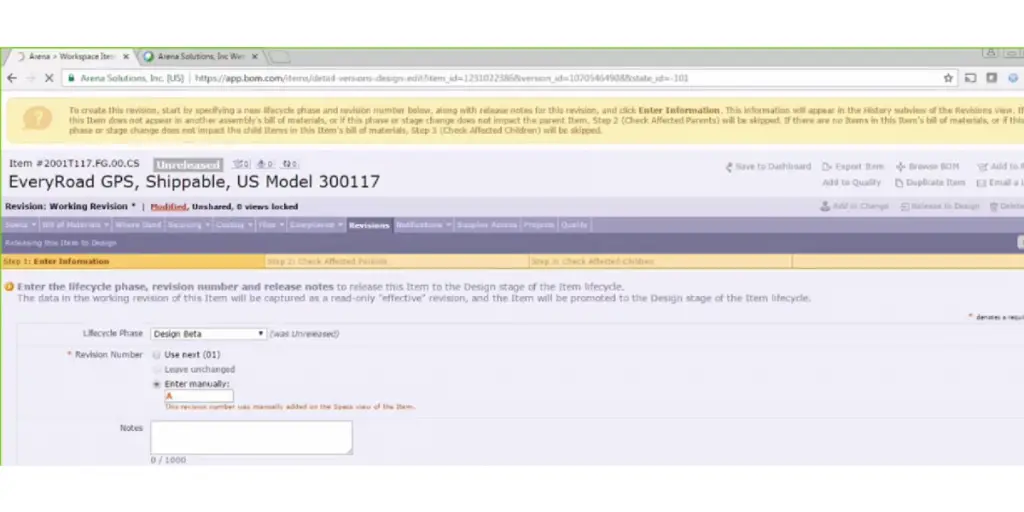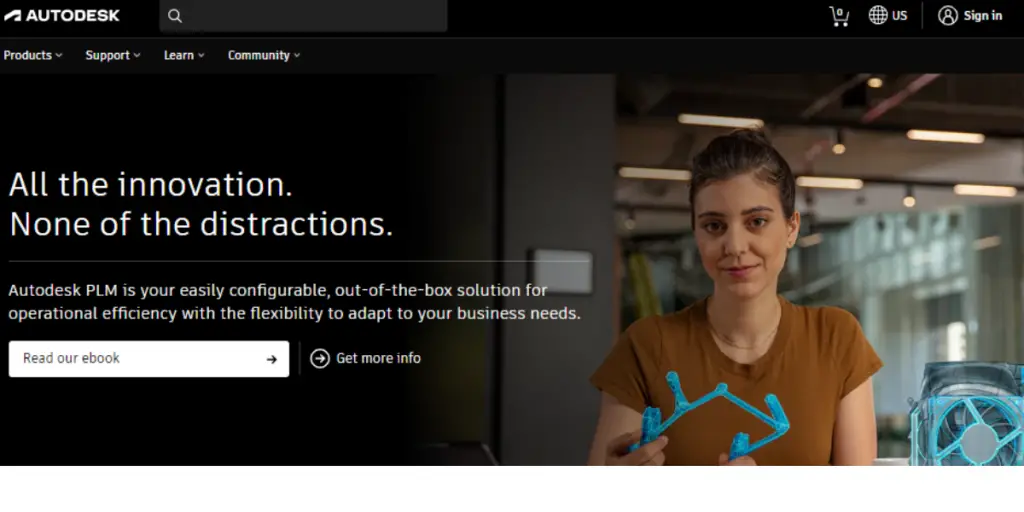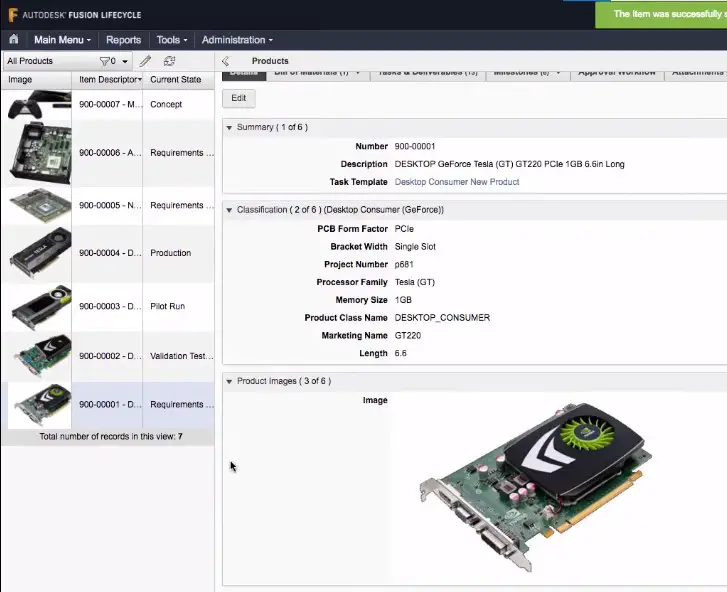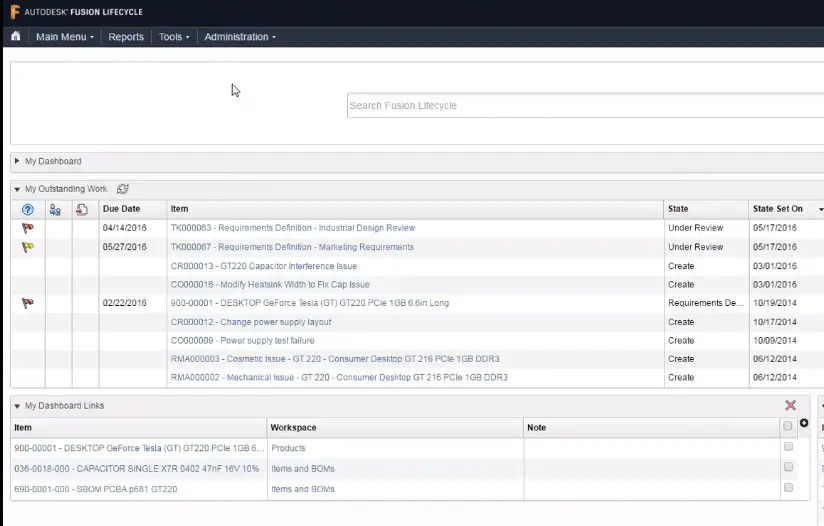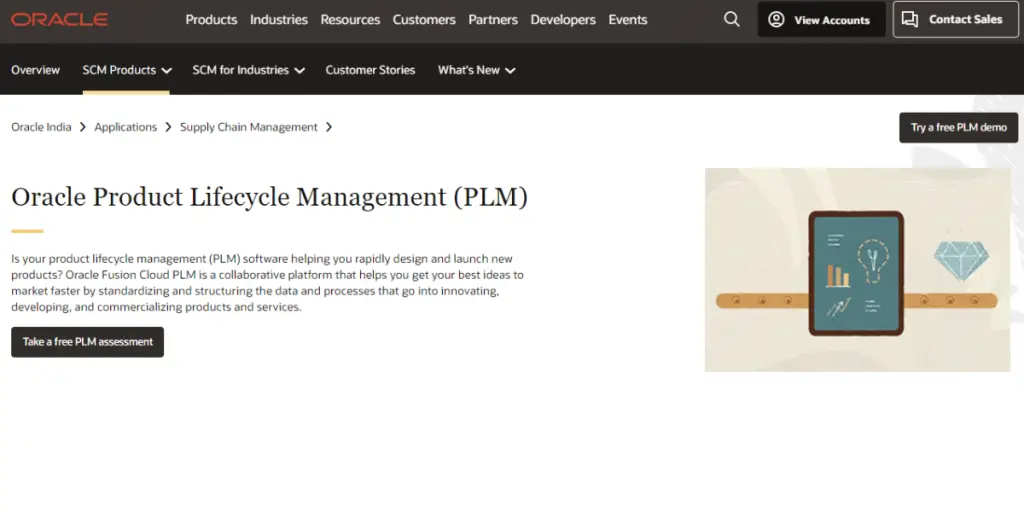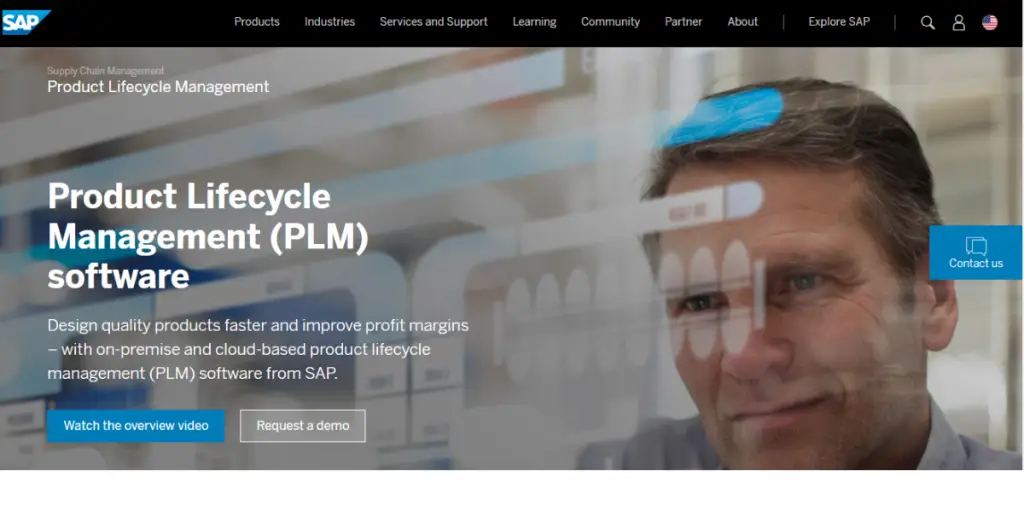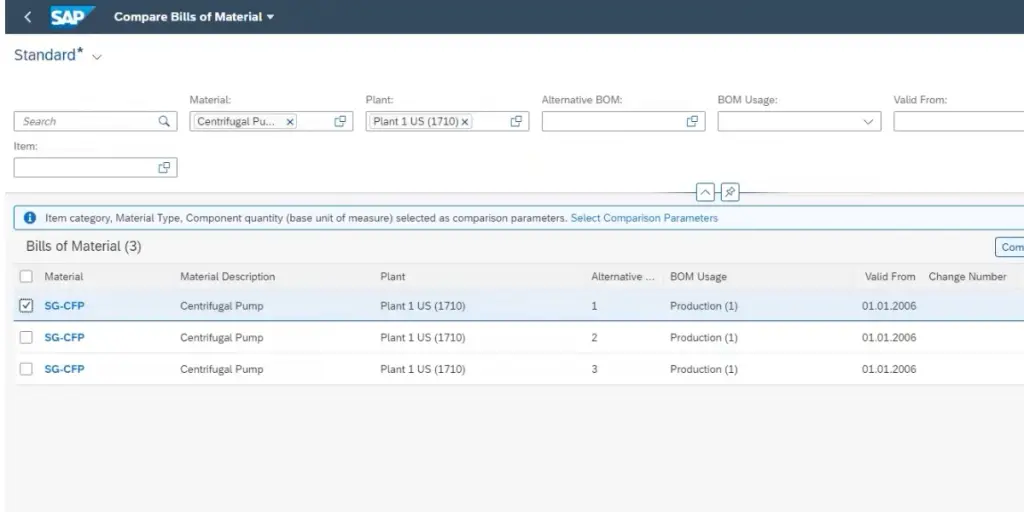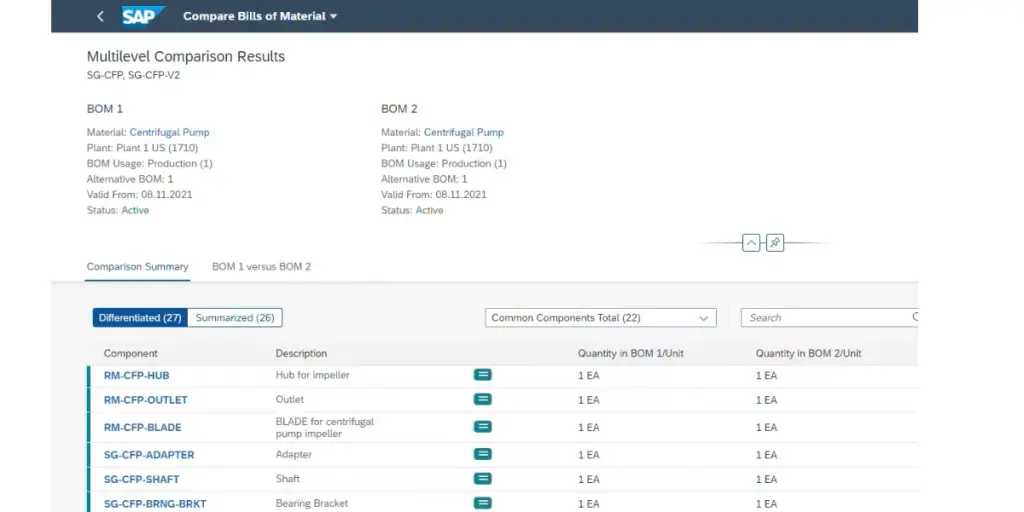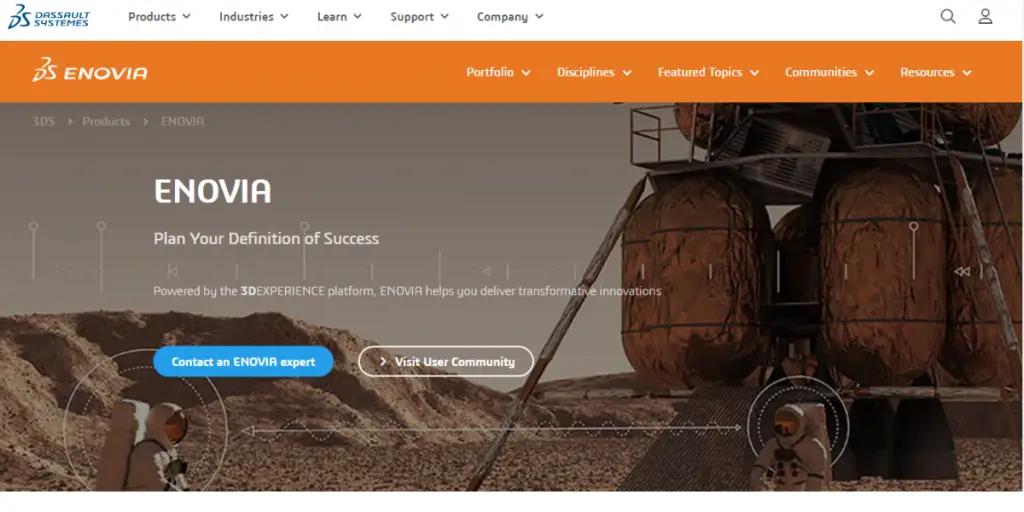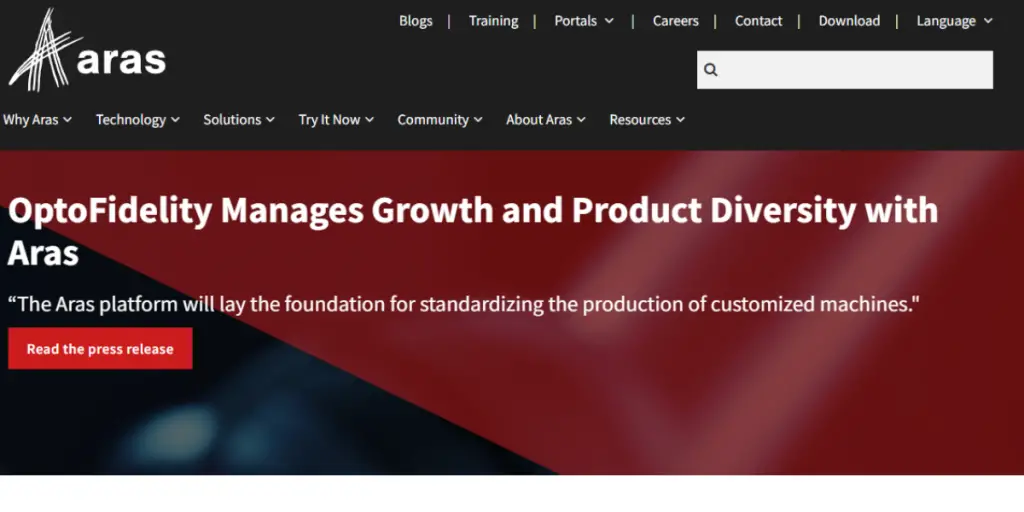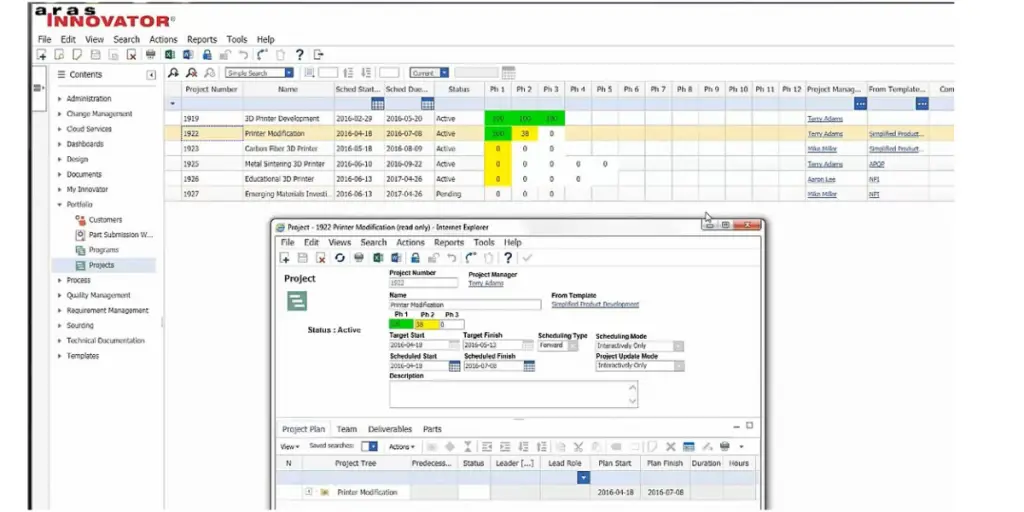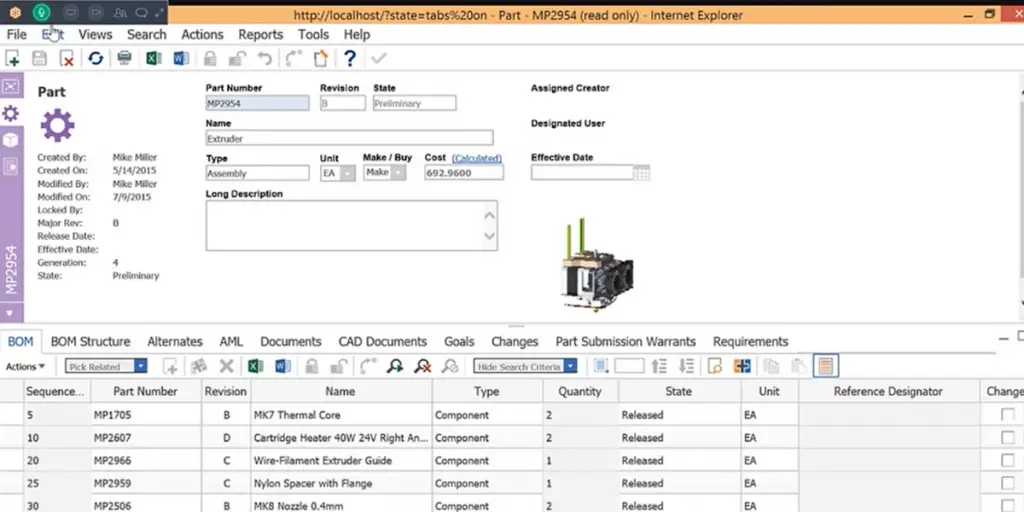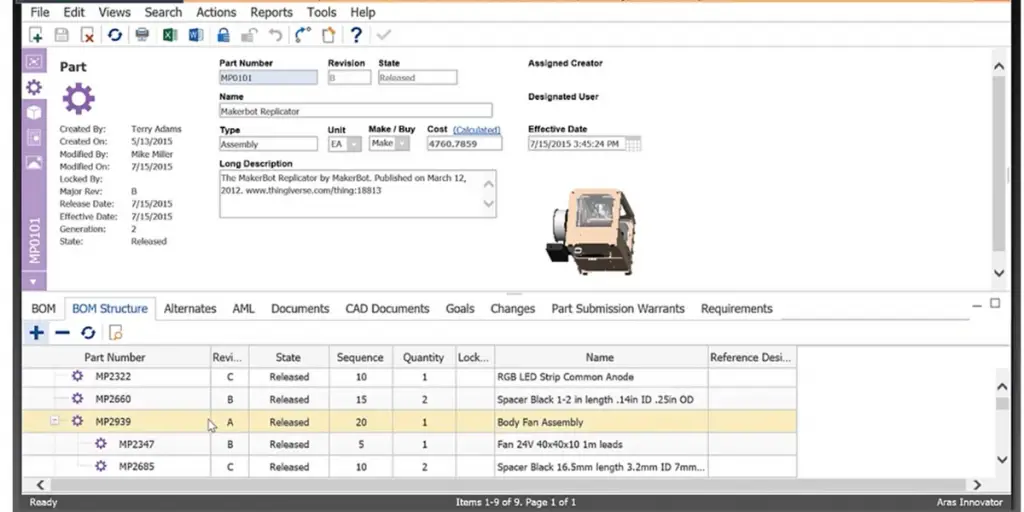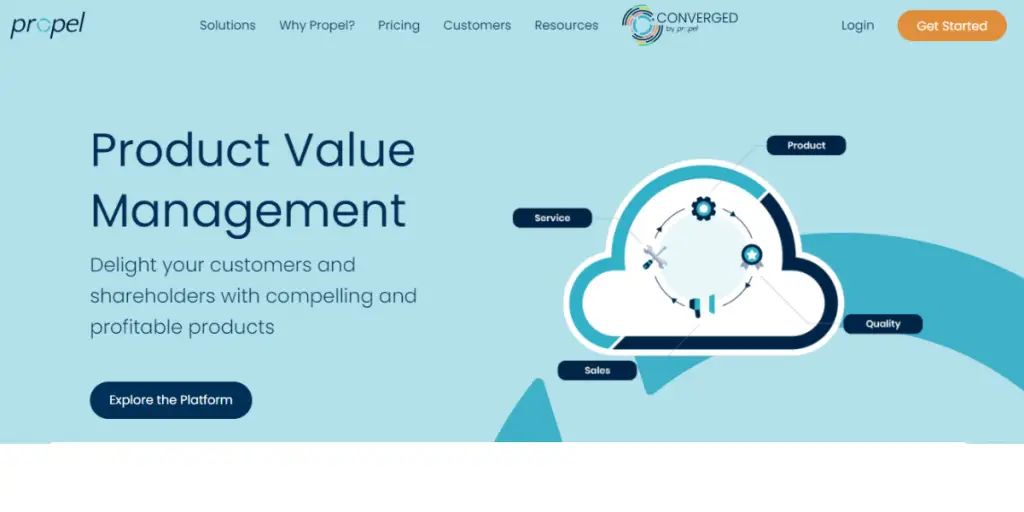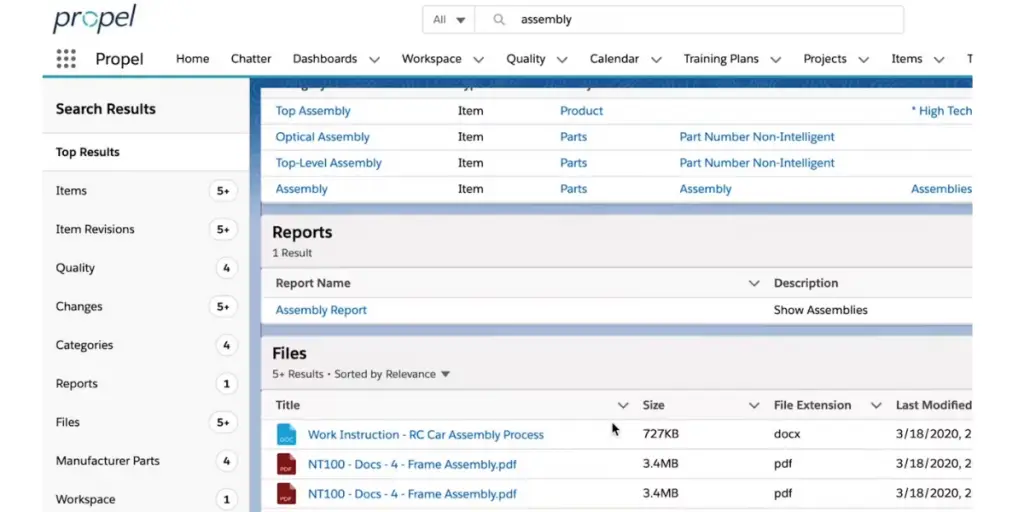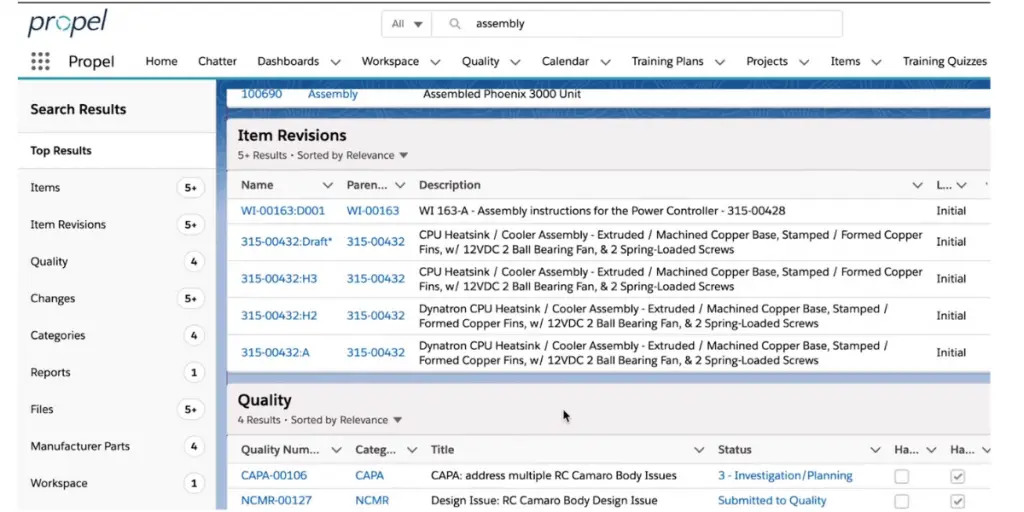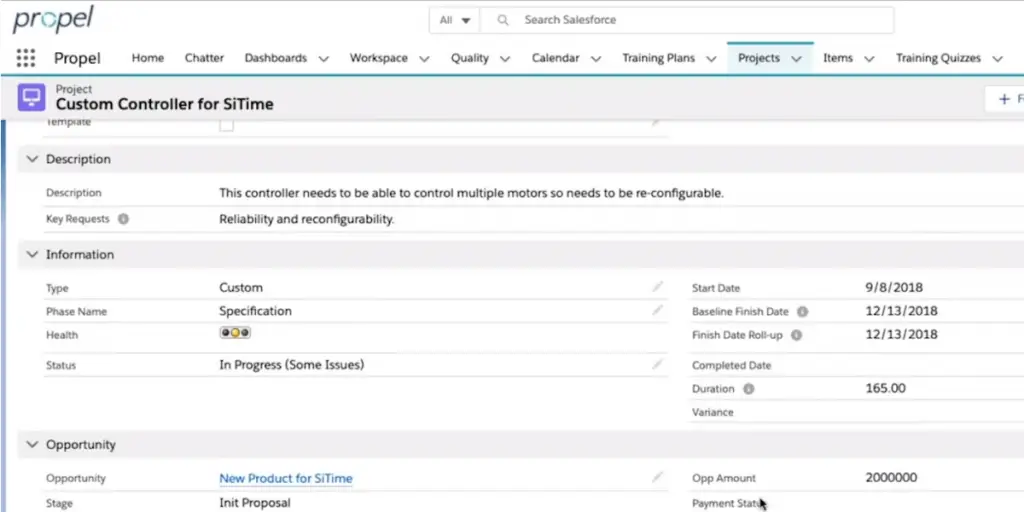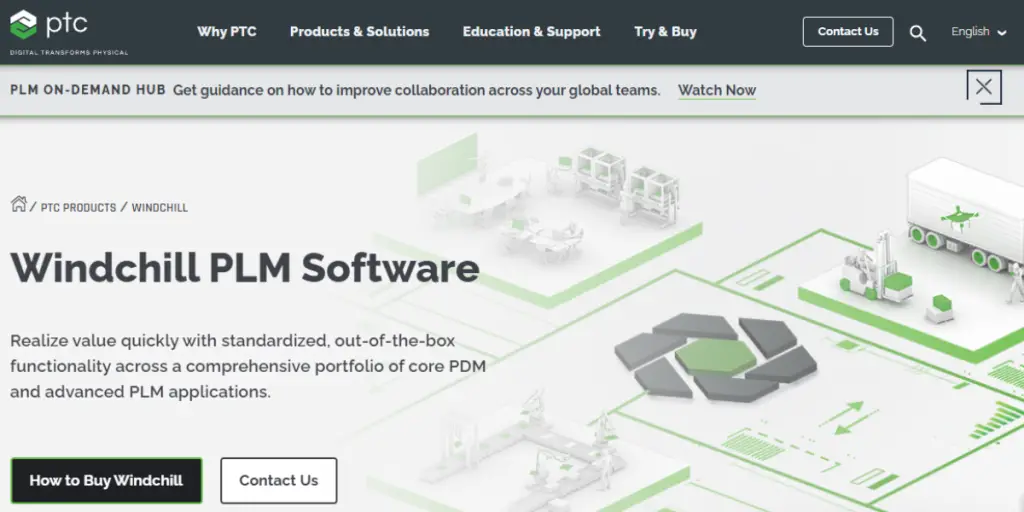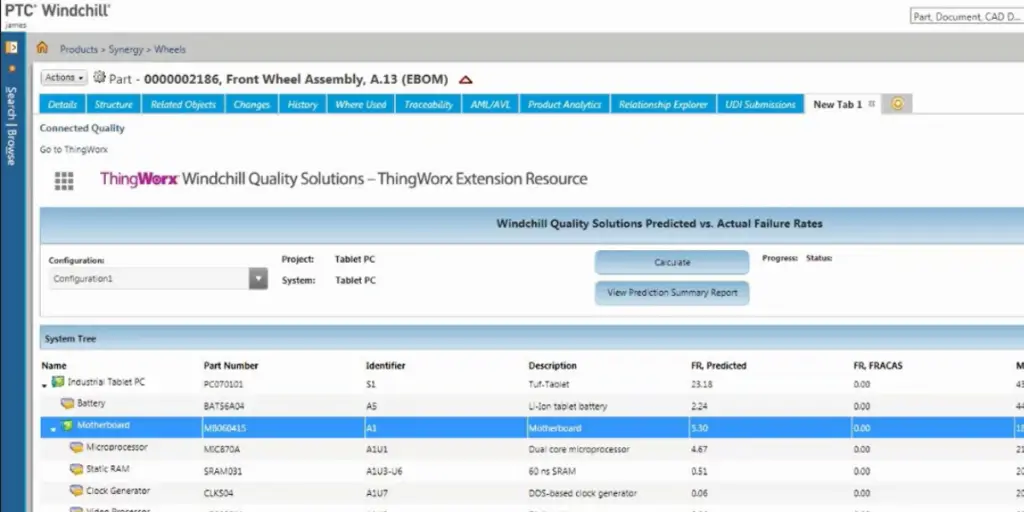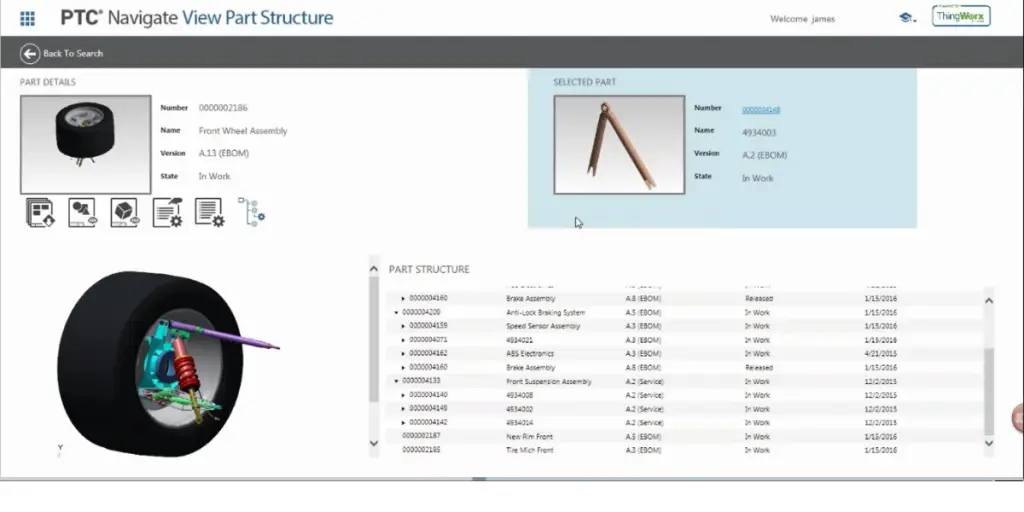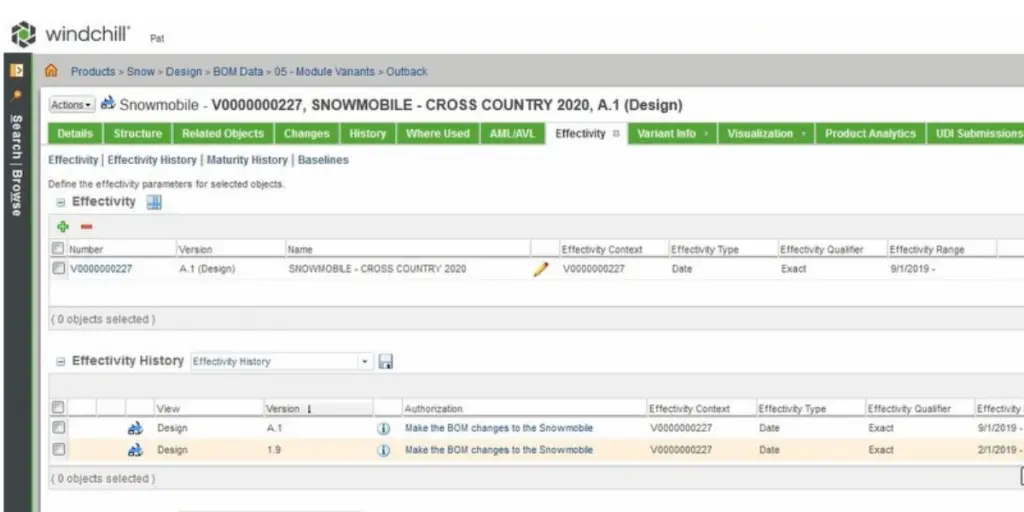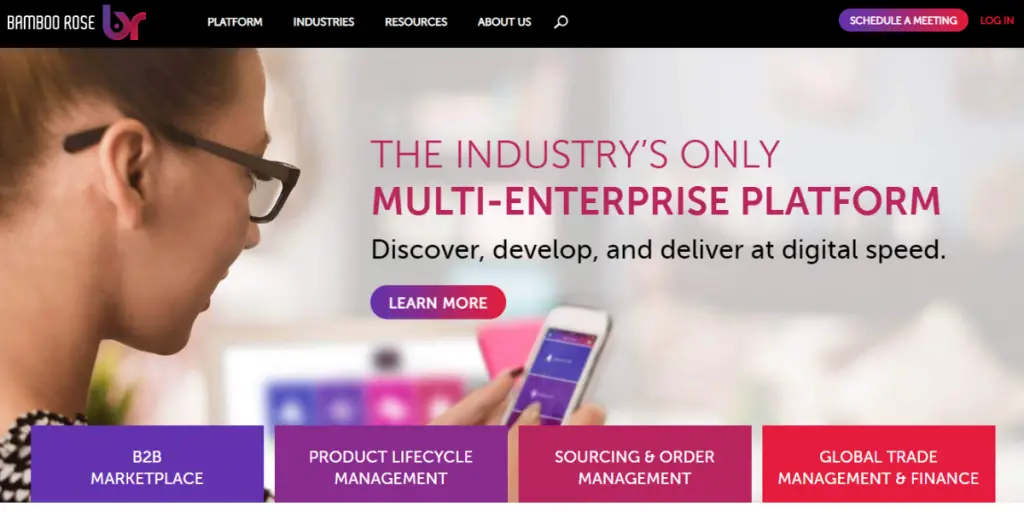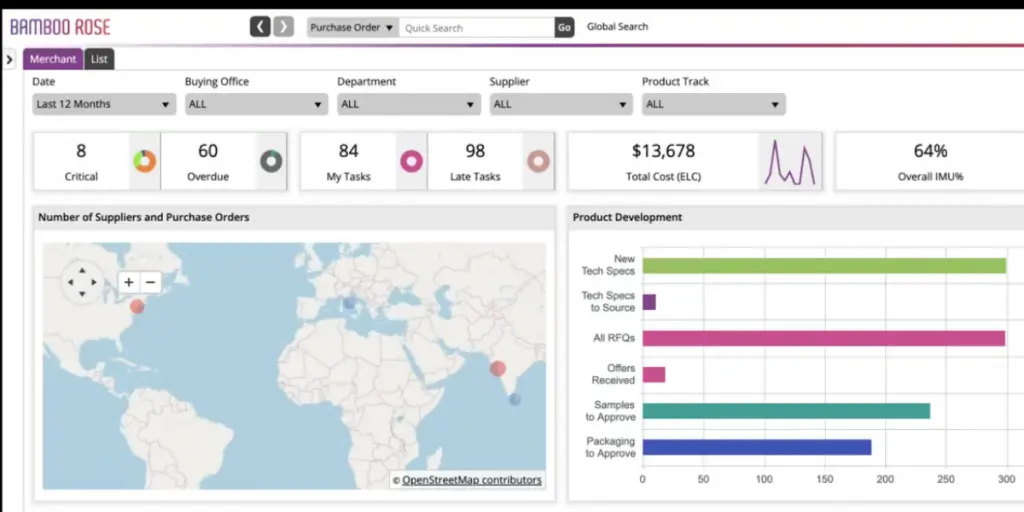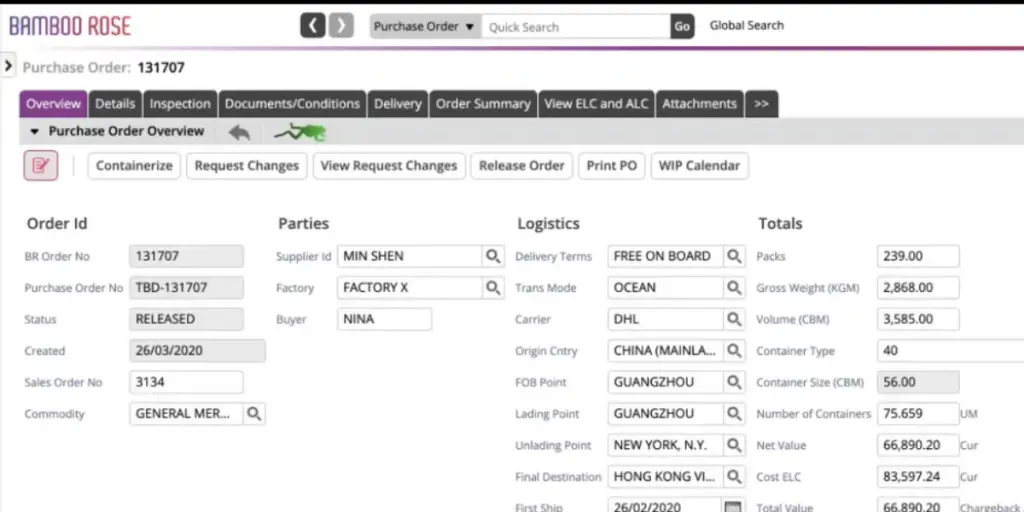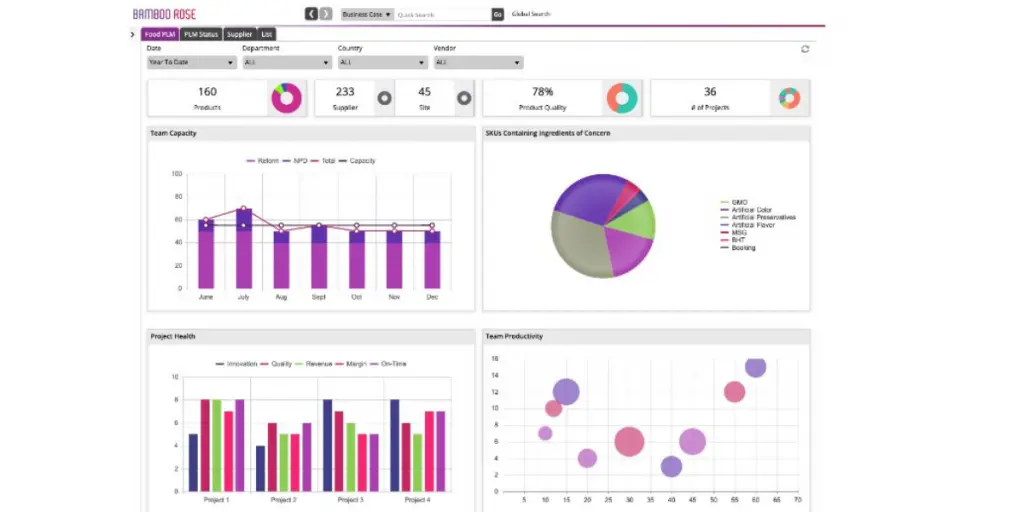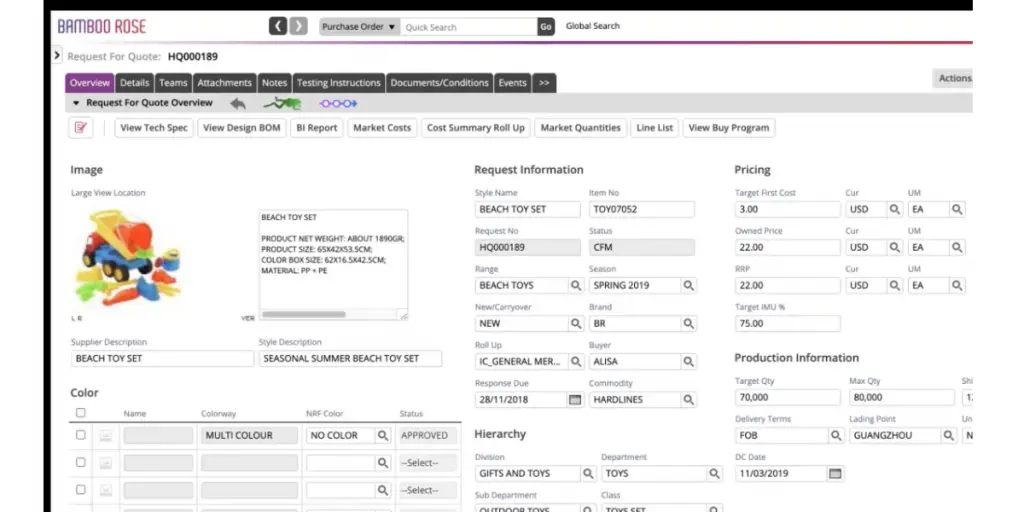Any company would aim to improve productivity, quality, and collaboration, boost creativity, and speed up the product release time.
Here, product life cycle management software plays a major role. They handle the life cycle of the product at every single stage in an efficient manner.
Additionally, its process management capabilities facilitate the seamless execution of the PLM framework. By leveraging these features, organizations can optimize their workflows and enhance productivity throughout the entire product lifecycle.
This blog post helps you decide on the right product lifecycle management software to aid your enterprise by giving you an insight into the ten best PLM software, including their features, likes, and dislikes.
What is Product Lifecycle Management Software?
Product lifecycle management software is a platform to manage the complete data and operations details at every stage of a product’s life, from conception, manufacturing, servicing, and sales or service life across a wide network of companies and individuals.
This typically constitutes information regarding the product’s various components, documentation, new design, modifications, quality-related activities, marketing, and sales.
The product lifecycle management software combines with many systems like ERP, MES, CAD, etc. It is a multi-user platform that allows people with different responsibilities and access to an organization to use it.
Important features for a platform to qualify to be a product lifecycle management software:
- Management of the design and process documents of the product
- Provision for an Information repository, which is centralized
- Management of workflow and process management for any modifications approval
- Secured access for multiple users (electronic signature)
- Automated tools for improving productivity
Uses of PLM software
- Improve productiveness
- Faster time to market products
- Reduction in production costs
- Centralization of data
- Integration of business operations
- Reduction of integrity risk
- Good analysis of data
Here is the list of the top PLM software.
1. Teamcenter by Siemens
Teamcenter software is a state-of-the-art platform with versatile PLM solutions that digitally connects people and processes across the operations of the various departments of a business to work creatively.
The results will remain the same regardless of the approach used to employ this software, like on a cloud, SaaS-delivered via Teamcenter X, or on-premises.
The software helps speed up the product development process and easily overcome any difficulties arising.
Features
- Adaptable PLM infrastructure
- Managing changes in workflow and operations
- Handling BOM, documentation, reports, and publications
- Managing electronic design, mechanical design, software, and manufacturing
- Managing the Manufacturing data, process, and materials from design to production
- Sustainability and satisfying environmental norms
- Cost, planning, and product execution
- Quality planning
- Research and analysis
- Managing the manufacturers, i.e., sources, and supplier interactions
- Provide digital mockups
Screenshots of Teamcenter by Siemens
Likes
- Stability in functioning
- Smooth integration with CAD, SAP, and NX
- Intuitive and easy accessibility of modules
- Easy configuration and application from different processes
- Easy management of processes and collaborations
- Enhances productivity
Dislikes
- Difficulty in navigating the UI
- Options for customization are limited
- The system can slow down and hang
- Improvements needed in graphic card configuration to handle data files
- It does not integrate with CATIA and Solidworks.
- Pricing can be revised.
- The software’s unintuitive interface requires training to achieve proficiency
- Hinders ease of use
- Occasional performance slowdowns, disrupting workflow and productivity
Supported industries
- Automotive and Transportation
- Aerospace and Defense
- Energy and Utilities
- Industrial Machinery
- Marine
Other details
| Deployment | Cloud, SaaS, Web-Based |
| Support | Chat |
| Training | In-Person, Live Online, Webinars, Documentation |
| Customer ratings | In-person, Live Online, Webinars, Documentation |
User opinion
Teamcenter software is an advanced system for digital collaboration across a business’s departments.
It supports product development and assists with any challenges that may arise, whether the software is used via the cloud, SaaS-delivered (Teamcenter X), or on-premises.
2. Arena PLM
The cloud PLM platform from Arena PLM is built to face any hurdles during the entire process of product development.
It aids in-house teams and their external partners to work in sync to design, produce, and deliver a product with the fastest possible solution while being cost-effective and highly productive.
It also complies with environmental and regulatory norms for FDA, ISO, ITAR, and EAR. Arena supports over 1000 state-of-the-art and multi-faceted customers in the electronics and medical devices industry to find a common solution for electrical, mechanical, and software designs.
Features
- Maximized scalability and serviceability
- Easy collaboration between partners
- Affordability
Screenshots of Arena
Likes
- Easy documentation
- Smooth functioning interfaces
- Simple BOM structure
- Good analytic capabilities
- User-friendly interface
- Accurate tracking of changes
- Accommodates adjustments in settings.
Dislikes
- Licensing is expensive
- Problems with integration tools for XPLM and Solidworks
- The search option is not handy.
- Processing bulk changes in multiple steps is sluggish
- It lacks intuitiveness, making it challenging for users to navigate and understand its functionalities
- The lack of clear guidance on next steps leaves users confused and unsure how to proceed within the software
- The absence of clear indicators for incomplete submissions can lead to errors and rework, hindering efficiency
- Software revision management is cumbersome and difficult to track
Supported industries
- Aerospace and Defense
- Computer Networking and Hardware
- Transportation Electronics
- Biotechnology
- Medical Devices
Other details
| Deployment | Cloud, SaaS, Web-Based |
| Supported device | Mac, Windows |
| Supported Languages | English, French, Spanish |
| Support | Email/Help Desk, FAQs/Forum, Knowledge Base, Phone Support, Chat |
| Training | In-Person, Live Online, Webinars, Documentation, Videos |
| Customer ratings | Capterra: 4.2 out of 5 (45+ reviews) G2: 4.2 out of 5 (282+ reviews) |
User opinion
Arena’s Cloud PLM platform is designed to overcome any issues during product development and enables teams and partners to collaborate quickly and cost-effectively.
It ensures compliance with environmental and regulatory standards such as FDA and ISO while providing features like scalability, serviceability, easy collaboration between partners, and affordability.
3. Autodesk Fusion Lifecycle
Autodesk Fusion Lifecycle is a cloud-based product lifecycle management software that aids in determining and automating processes. It keeps checking the product development and workflow going forward without any hurdles.
It can incorporate; a single centralized data source, BOM, Change Management, Quality Management, Supplier Collaboration, and Product Data Management.
Features
- Collaborations with your global supply chain and enhance efficiency
- Shorten target dates and fast-track the process of product development
- Centralized source of data for the entire process, managed BOM and materials
- Aids engineering division with changes with organizing, managing, and tracking product data, revisions, and releases
- Provision for change management and quality management
Screenshots of Autodesk Fusion Lifecycle
Likes
- Easy collaboration
- Access to data
- Good user interface
- Visualization of product available
Dislikes
- Cloud navigating makes it slow
- Problem with third-party controls
Other details
| Deployment | Cloud, SaaS, Web-Based |
| Supported device | Windows, Android, iPhone, iPad |
| Support | Email/Help Desk, FAQs/Forum, Knowledge Base, Phone Support, Chat |
| Training | In-person, Live Online, Webinars, Documentation, Videos |
| Customer ratings | Capterra: 4.3 out of 5 (1952+ reviews) |
User opinion
Autodesk Fusion Lifecycle is a cloud-based PLM solution that can be implemented quickly and easily in organizations of any size.
It is accessible from either a desktop or a mobile device, offering centralized data storage and tools such as BOM, change management, quality management, supplier collaboration, and product data management.
4. Oracle Agile PLM
Oracle Agile PLM platform is the latest all-inclusive software available for the industry to adopt. It contains all the main elements that handle product value chains efficiently.
As a result, this collaborative software helps the choicest projects to reach the market faster.
Features
- Comprehensive and well-connected platform
- Quality management tackles any issues arising in the process.
- Streamlined corrective actions
- Exploring data-driven insights
- Portfolio management helps manage plans, human resources, materials, and other resources required to be invested in new product development.
Likes
- Good features and components
- Structured BOM
- Cost-effective solution
Dislikes
- The licensed version is costly
- Not scalable
- BOM management does not support many files
Supported industries
- Automotive
- Communications
- Consumer goods
- Healthcare
- Hightech
- Oil and Gas
Other details
| Deployment | Cloud, SaaS, Web-Based |
| Support | FAQs/Forum, Knowledge Base |
| Training | Videos |
| Customer ratings | Capterra: 4.2 out of 5 (21+ reviews), G2: 4.0 out of 5 (67+reviews) |
User opinion
Oracle Fusion Cloud PLM helps teams work together to prioritize and manage data required for innovation and releasing new products and services. It ensures that processes within the supply chain and development teams are unified and efficient.
Some of the features it offers are Product management and lifecycle analysis, cost and quality management, Product collaboration and portfolio management, documentation, manufacturer and supplier management, quality control of PLM processes, and many more.
5. SAP PLM Software
SAP PLM software lends support to product realization processes. It may also be used along with SAP and other products.
In addition, it helps provide faster and better decision-making on product blueprints to satisfy various customized requirements of the customers.
Features
- Resource and portfolio management
- Management of product design, product development, costing, and compliance
- BOM and documentation
Screenshots of SAP PLM
Likes
- Easy creation of documents and BOM
- Adaptable integration solutions (ERP)
- Monitoring the progress of the product
- Well-connected with all the departments involved (Design, hardware, software engineering, and services)
Dislikes
- UX design can be improved
- Migration troubles (from ERP)
Supported industries
- Automotive
- Banking
- Consumer products
- Oil, Gas, and Energy
- Retail
Other details
| Deployment | Cloud, SaaS, Web-Based |
| Supported device | Windows, Mac, Linux |
| Support | FAQsEmail/Help Desk, Phone Support, 24/7 (Live Rep), Knowledge Base |
| Customer ratings | Capterra: G2: 4.4 out of 5 (12+reviews) |
User opinion
SAP PLM software can be used with other SAP products to offer support for the product realization processes.
It provides faster and more accurate decision-making on product blueprints to meet customer requirements, such as resource/portfolio management, product design and development, costing, compliance management, BOM, documentation capabilities, etc.
6. ENOVIA
Enovia PLM platform aids teams across the value chain to seamlessly carry out innovation and collaboration in any field of business.
It helps the product reach the market smoothly and successfully. All team members can securely access PLM data inside and outside.
Features
- Connecting people, ideas, processes, and data
- Strategic project planning
- Building a good value chain
- Provides virtual development – Reducing design time and overhead
Likes
- Easy to work
- Easy collaboration
- Involvement of all stakeholders in the process
Dislikes
- No help section in the FAQ section
- User interface needs improvement
- Slow loading of pages
Supported industries
- Aerospace and Defense
- Transportation and Mobility
- Life Sciences and Healthcare
- Home and Lifestyle
Other details
| Deployment | Cloud, SaaS, Web-Based |
| Supported languages | German, English, French, Japanese, Korean, Spanish, Chinese (Simplified) |
| Support | Email/Help Desk, Phone Support |
| Customer ratings | Capterra: G2: 4.4 out of 5 (12+reviews), G2: 4.1 out of 5 (73+reviews) |
User opinion
Enovia PLM connects people, ideas, processes, and data to help teams collaborate and pioneer in any field of business. It provides a smooth and successful product launch that can securely access by members inside and outside the team.
Moreover, it features strategic project planning, building a good value chain, and virtual development, reducing design time and overhead.
7. Aras PLM
Aras PLM is an open architecture platform that allows the creation of tailor-made client solutions.
This low-code technology provides fast and upgradeable solutions for the entire lifecycle of sophisticated products in all engineering, manufacturing, and maintenance processes.
Features
- Takes care of the manufacturing process planning, design, engineering, and quality.
- Adaptable to any business changes.
- Documentation and BOM
Screenshots of Aras PLM
Likes
- Controls both business and finances
- Wide range of toolsets
Dislikes
- Some technical issues
- Slower functioning
Supported industries
- Aerospace and Defense
- Automotive
- Medical devices
- High-Tech Electronics
Other details
| Deployment | Cloud, SaaS, Web-Based |
| Supported device | Mac, Windows |
| Support | Email/Help Desk, FAQs/Forum, Knowledge Base, Phone Support, 24/7 (Live Rep), Chat |
| Training | In-person, Videos |
| Customer ratings | Capterra: G2: 3.4 out of 5 (7+reviews), G2: 3.7 out of 5 (13+reviews) |
User opinion
Aras PLM is an open architecture platform that enables the development of custom-made solutions unique to a client’s needs.
This low-code technology is efficient and upgradeable, offering comprehensive support for the entire lifecycle of complex products at all levels of engineering, manufacturing, and maintenance operations.
Additionally, Aras PLM ensures to take care of the design, engineering, and quality materials during manufacturing. It can seamlessly adapt to any business adjustments with its well-documented bill of materials (BOM).
8. Propel
Propel is a cloud-based PLM platform that offers to develop, enhance, and set into motion the product into the market. Easy-to-use software connects all the components of a product to yield good results.
Features
- Collaboration across the value network
- Documentation and BOM
- Offers change management, quality management, tasks, and requirements
- Product information management
Screenshots of Propel
Likes
- User friendly
- Easy to customize
Dislikes
- Cannot maintain complete BOM
- Management of notifications is not good
- Managing training requirements through the back-end interface is tedious and inefficient
Supported industries
- Medical Device
- High Tech
- Consumer Goods
- Industrial Products
Other details
| Deployment | Cloud, SaaS, Web-Based |
| Supported languages | Danish, German, English, French, Italian, Japanese, Korean, Dutch, Norwegian, Portuguese, Russian, Spanish, Swedish, Thai, Chinese (Simplified) |
| Support | Email/Help Desk, Knowledge Base, Phone Support, Chat |
| Training | In-Person, Live Online, Webinars, Documentation, Videos |
| Customer ratings | Capterra: G2: 5.0 out of 5 (1+reviews), G2: 4.1 out of 5 (83+reviews) |
User opinion
Propel is a cloud-based, user-friendly PLM software that develops, refines, and launches products into the market. This software coordinates the several components of product development for optimal results.
It also provides collaboration across the value chain, along with change management, quality management, tasks & requirements, and product information management underpinned by relevant documentation & BOMs.
9. Windchill
Windchill is a PLM system by PTC with open architecture. It aids in easy integration and provides a strong base for any product-driven digital thread. You can use it on Windows, Linux, and UNIX.
Features
- Offers package deals for both experts and non-experts
- Multi-system data handling
- Data upgradation and systematized automation
- Provides both cloud and on-premises delivery (secure and fast)
Screenshots of Windchill
Likes
- Compatibility
- Supports multiple users and multiple devices
- Visually compares and validates product management process
- Provides BOM
- Provision for interface customization for user
Dislikes
- Search and navigation can be improved
- Customer support needs to improve
- The high frequency of bugs and issues necessitates constant admin intervention, hindering productivity and workflow
- Poor usability directly contributed to delays in ABB’s portfolio, highlighting the software’s inadequacy for their needs
- New users find Windchill extremely difficult to use due to its unintuitive interface and excessive clicking requirements
Supported industries
- Aerospace and Defense
- Automotive
- Electronics and High-Tech
- Life and sciences
- Oil and Gas
- Retail and Consumer Products
| Deployment | Cloud, SaaS, Web-Based |
| Supported languages | Danish, German, English, French, Italian, Japanese, Korean, Dutch, Norwegian, Portuguese, Russian, Spanish, Swedish, Thai, Chinese (Simplified) |
| Support | Email/Help Desk, Knowledge Base, Phone Support, Chat |
| Training | In-Person, Live Online, Webinars, Documentation, Videos |
| Customer ratings | Capterra: G2: 5.0 out of 5 (1+reviews), G2: 4.1 out of 5 (83+reviews) |
User opinion
Windchill is one of the PLM tools with an open architecture for effortless integration and a powerful backbone for digital products. It is compatible with Windows, Linux, and UNIX systems, providing packages for experts and amateurs.
It can manage multi-system data, upgradation of data, and automate systemization. It caters to both secure cloud and on-premises delivery options.
10. Bamboo Rose
Bamboo Rose, retail product lifecycle management, is a unique platform to transform design concepts from development and testing to branding and sales.
It can support complex and undemanding lifecycle management processes to deliver the goods well in time at the appropriate marketplace.
In addition, it allows retailers and suppliers to work in unison to develop quality products with a few reduced cycle times.
Features
- Automatic adjustments to market variations and design changes
- Handling all BOMs and documentation through the process
- Innovatory designing of all products
- Shorter cycle times
- Reduced sampling costs
Screenshots of Bamboo Rose
Likes
- Creative digital rooms for collaboration
- Automation of import and export
Dislikes
- Limited integration capabilities with external software
- Certain users perceive the platform as complex
- A steep learning curve can be time-consuming
- Costly option for small-scale enterprises
- It suffers from inconsistencies in design and functionality across different application modules.
- The software’s initial navigation is challenging
Supported industries
- Fashion and Apparel
- Food and Consumables
- General merchandise
Other details
| Deployment | Cloud, SaaS, Web-Based |
| Support | Android, iPhone, iPad |
| Support | Email/Help Desk, Phone Support |
| Customer ratings | Capterra: G2: 5.0 out of 5 (1+reviews), G2: 3.8 out of 5 (8+reviews) |
User opinion
This PLM platform offers a comprehensive solution for designing, testing and developing branded and private-label products.
Bamboo Rose PLM ensures the production of quality products quickly and efficiently and supports the right products to reach the market at the desired time at a competitive price.
Note: Pricing details are not provided on the official website of the above software. You need to contact the vendor for the details.
Conclusion
In conclusion, a suitable PLM software is essential to seamlessly connect businesses throughout the product value chain. This blog post discussed several necessary resources to help you make an informed decision when choosing a PLM software solution.
By effectively managing quality control, resources, documentation, research and development, and sales and marketing. The right PLM software can empower businesses to thrive in today’s demanding marketplace.
We hope your journey from product conceptualization to product realization gets fruitful after going through the post.
Reference
